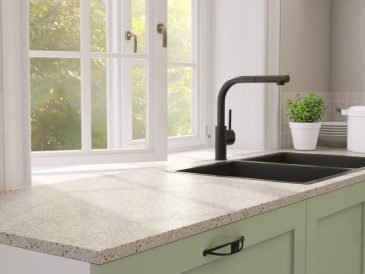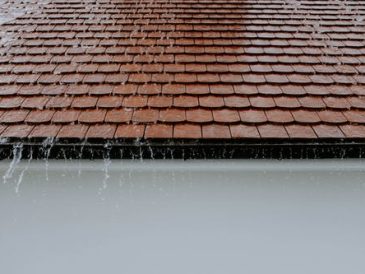Have you been considering enhancing your home security but are torn between a DIY approach and hiring a professional? You’re not alone. Many homeowners face this dilemma, and the choice isn’t always straightforward. Let’s look into both options and help you decide which is right for you.
DIY Security Systems
DIY security systems are increasingly popular thanks to their affordability and flexibility. These systems have several appealing features, but they may not be suitable for everyone.
Advantages of DIY Security Systems
-
Cost-effectiveness: DIY systems often come with lower upfront costs and no professional installation fees.
-
Flexibility and Control: You can customize the system to meet your unique needs and scale it as required.
-
Ease of Installation: Modern systems are designed for easy installation, often requiring no special skills or tools.
-
No Contracts: Many DIY systems don’t require a long-term contract.
Drawbacks of DIY Security Systems
-
Limited Capability: They may lack some advanced features provided by professional installations.
-
User Error: Installing and configuring everything correctly can be challenging for some.
-
Varying Support: Customer support might not be as robust, leaving you to troubleshoot issues alone.
Professional Security Installation
Conversely, investing in a professional security system can provide peace of mind, as experienced technicians handle setup and maintenance.
Benefits of Professional Security Installation
-
Expert Setup: Ensures that all components are correctly installed and operational.
-
Comprehensive Features: Some systems might include monitoring services and intricate alarm responses.
-
Reliability: High-quality equipment and experienced oversight reduce the risk of system failures.
-
Support: Access to professional support for any issues or upgrades.
Considerations of Professional Security Installation
-
Higher Costs: The investment is often higher due to installation and ongoing service fees.
-
Less Customization: Some packages may not offer the flexibility you get with DIY systems.
-
Commitment: This may require a contract for monitoring services.
Comparing DIY and Professional Systems
Before making a decision, consider the key differences between these two approaches.
1. Cost Analysis
Cost is a significant factor for many homeowners. While DIY systems are generally less expensive at the onset, ongoing services like monitoring can narrow the gap. It’s worth considering your budget and weighing this alongside features and benefits.
2. Ease of Use and Convenience
DIY systems triumph in usability for tech-savvy individuals who appreciate easy-to-install systems they can control directly. However, those looking for convenience and assurance may prefer the hands-off approach offered by professionals.
3. Security Needs Assessment
Understanding your specific security needs is crucial. A comprehensive security installation might be necessary for larger homes or businesses with specific security concerns. Evaluate the breadth and depth of coverage you require to make an informed decision.
Evaluating Your Home Security Needs
Determining what you need from a security system is paramount. Here’s how you can assess your requirements:
-
Home Size and Layout: Larger areas often require more equipment and complex configurations.
-
Neighborhood Security Level: Research local crime rates and neighborhood dynamics.
-
Your Personal Lifestyle: Consider your schedule and routine to cover all eventual access points.
-
Value of Possessions: Higher-value items may justify more advanced systems.
Special Considerations
Consider any unique factors that might influence your decision, such as pets, children, or elderly household members. Some systems offer pet-friendly sensors or include additional features to ensure the safety of your family members.
Technology and Integration
Modern security systems often allow integration with smart home devices. Wi-Fi-enabled cameras, smart locks, and voice-assistant compatibility are popular features to consider. Having the best security cameras in Ohio certainly doesn’t hurt, either.
Seeking Recommendations and Reviews
Before investing in a system, checking user reviews and professional opinions can provide insights into system reliability and user satisfaction. It’s also wise to seek feedback from fellow homeowners and security specialists.
Making the Final Decision
Ultimately, the choice between DIY and professional security solutions depends on your particular needs, budget, and personal preferences. A DIY solution might be perfect for savvy individuals comfortable with technology, while others may find solace in the expertise that professionals provide.
Emerging Trends in Home Security
The landscape of home security is continuously evolving, driven by technological advancements and changing consumer needs. Staying informed about these trends can help you make a more future-proof decision, whether you lean towards DIY, professional, or hybrid solutions.
Key Trends to Watch:
-
AI and Machine Learning Integration: Cutting-edge AI technologies are starting to play a pivotal role in security systems. They can differentiate between usual and unusual activity, reducing false alarms and offering more accurate threat detection.
-
Smart Home Integration: Security systems are becoming increasingly interconnected with smart home devices, allowing users to control everything from lighting to locks via a unified platform. This integration creates a seamless security ecosystem that’s both efficient and user-friendly.
-
Remote Monitoring and Management: With mobile apps and cloud-based solutions, homeowners can monitor and manage their security systems from anywhere in the world. This enables real-time alerts, live-streaming video, and remote control over devices, enhancing both convenience and security.
-
Eco-Friendly Solutions: As sustainability becomes a focal point for many households, eco-friendly security options, such as solar-powered cameras and energy-efficient sensors, are growing in popularity. These options reduce both carbon footprint and long-term costs.
-
Personalized Security Plans: Companies are increasingly offering personalized security plans that cater to the specific needs and lifestyles of homeowners. These plans can include custom sensor setups, pet-friendly features, and adjustable monitoring plans to better align with users’ preferences and budgets.
Final Thoughts
Both DIY and professional security installations have their merits and drawbacks. By understanding your personal needs and constraints, you are better equipped to make an informed choice that will protect your home efficiently. Remember, the best system is one that you feel confident using and trusting for your security needs. Whatever you decide, be sure it aligns with your security goals and lifestyle.





